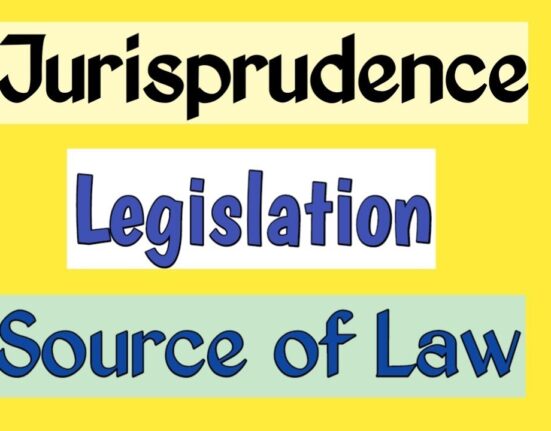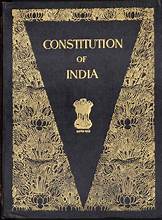Riya Upadhyay, a 5th-Year student, from Kaji Najrul University, has written this Article ”A Summary of Section 138 of Negotiable Instrument Act , 1881”
Introduction
Section 138 of Negotiable Instrument Act deals with dishonour of cheques. The Negotiable Instrument Act, 1881 came into force on 1st March of 1882 to provide a uniform law for governing different instruments used in place of fiat money as a matter of convenience. A new Chapter XVII was inserted into the Act on 1st April of 1989 by Section 4 of the Banking, Public Financial Institutions and Negotiable Instruments Laws (Amendment) Act, 1988, (Act 66 of 1988) due to various kinds of frauds and immoral practices that were taking place in the mercantile community. The amendment was made to preserve the sanctity of cheques’ instrumentality as an alternative payment mode.
Section 138 of NI Act
Section 138 provides for prosecution in instances of dishonouring a “cheque”. The term “cheque” has been defined in Section 6 of the Act as a bill of exchange wherein the drawer is the person who is making the cheque, the drawee is the bank of the drawer, and the payee or holder in due course is the person to whom the amount of the cheque is to be paid by the bank. The provision also provides that it is always payable on the demand of the payee and not otherwise. The term “cheque” will include an electronic image of a truncated cheque and a cheque in electronic form.
All the above-mentioned essentials are mandatory to be fulfilled to invoke Section 138. A person culpable under Section 138 of the Act can be made liable for a punishment that may extend up to 2 years of imprisonment or a fine that may extend up to twice the amount of the cheque in dispute, or both. Further, it is pertinent to note that there is a limitation period of 1 month from the date on which the cause of action arose, as provided under Section 142(1)(b), and the proviso to the said provision also provides for condonation of delay in the cases where there is a sufficient cause for delay.
Objective and Scope
Section 138 of the Negotiable Instruments Act deals with the punishment for the dishonour of the cheque. Section 138 of the Negotiable Instruments Act 1881 provides the legal recourse to handle things of cheque bounce. The main objective is to incentivize the trend of the use of cheques and to increase the credibility of cheques transactions by making the offence. An offence committed under Section 138 is a non-cognizable offence. Also, it is a bailable offence.
Procedure for Filing of Complaint
After complying all chronology provided under Section 138 of the Act, the Compliant is required to be made to the Concerned Magistrate within 30 days from the day on which the period of 15 days for payment of monetary by the drawer expires. The compliant is required to be signed by the Complainant himself or duly authorised Power of attorney holder. On the day complaint is presented, if the complaint is accompanied by affidavit of complainant, the concerned magistrate shall examine complaint & documents.
Summons are going to be issued to accused in accordance with the section 144 of the act as explained above. If a summon is served upon the accused and, as a result, the accused appears within the court, the Court shall ask him to furnish bail to ensure his attendance during the trial (since the offence under Section 138 is a bailable offence). Subsequently, a notice is issued to the accused in accordance with section 251 of the CRPC. Once these proceedings are completed, the trial of the case starts.
Importance of Section 138 NI Act
- The drawer must have legally enforceable debt or liability to pay a certain amount to the payee, and a cheque is drawn to discharge such debt or liability.
- The cheque is returned unpaid either due to insufficient funds or because it exceeds the amount agreed upon with the bank to be paid from that account.
- The cheque is presented within three months from the drawn date.
- Notice should be filed within 30 days of receipt of information from the bank regarding the dishonour of the cheque.
- The drawer of the cheque has made the payment within 15 days of the receipt of the notice.
Case Laws regarding A Summary of Section 138 of Negotiable Instrument Act
From the given case, we can conclude that Section 138 is a civil wrong and is treated as such, and only in the presence of some special circumstances it will lead to sentence of imprisonment imposed and not otherwise, as it is compensatory in nature.
In the case of Kaushalya Devi Massand v. Roopkishore Khore (2011)
The Supreme Court observed that an offence under Section 138 of the Negotiable Instrument Act, 1881, cannot be equated to any offence under the Indian Penal Code, 1860 as Section 138 attached liability to a civil wrong that has been given a criminal overtone. In the given case, the appellant was an old and widowed lady who had been arguing the case against the respondent for the last 14 years. The Appellant was to recover Rs. 3,00,000 as a consideration in lieu of a property; however, the cheques given by the respondent were dishonoured due to insufficiency of funds, and the appellant thereby pressed upon the fact that imprisonment in such a case is a must to restore the faith of people in the judicial system and that it would act as a deterrent to other people who draw cheque with malign intentions to defraud the payees.
Both the High Court and the Supreme Court in the given case observed that there should be some special circumstances in the case to make the accused liable to imprisonment, and in the given case there was no other special circumstance other than the victim being an old and widowed lady. Consequently, the High Court increased the compensation from Rs. 4,00,000 to Rs. 6,00,000 and the Supreme Court increased the compensation from Rs. 6,00,000 to Rs. 8,00,000 and held that in the following case monetary compensation can be sufficient to compensate the victim and there is no need to impose any sentence of imprisonment.
In the case of Gimpex Private Ltd. V. Manoj Goel (2021)
a division bench of the Supreme Court comprising Hon’ble Justice D.Y. Chandrachud and Hon’ble Justice B.V. Nagarathna while relying on a notice issued by the Ministry of Finance on 8th June 2021, observed that Section 138 being a criminal offence in India has severely affected the ease of doing business in India and has disincentive the investors from making investments in India, by observing the following issue the court has made its propensity towards decriminalising of Section 138 more apparent.
Conclusion of A Summary of Section 138 of Negotiable Instrument Act
Through Section 138 Payee is protected against illegal activity of the drawer. It not solely aims to shield the interest of the payee, but additionally to bring holiness to the drawers who issues the cheques. In conclusion, the importance of speedy and timely disposal of cheque bounce cases is one amongst the foremost concerns before the judiciary. This is because the aim of timely payment of monetary dues to the payee and enacting the remedy for him would fail if the accused successfully accomplish prolonging these cases.
Reference of A Summary of Section 138 of Negotiable Instrument Act
To read more articles click here







Leave feedback about this